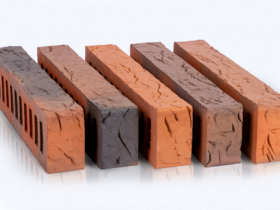Expanded clay – building materials obtained by firing alloy clay varieties. Clay granules are covered in a furnace located under a certain inclination. In the bottom of the furnace, nozzles are installed through which the burning gas is supplied. In the process of firing, granules are formed with a rather dense surface layer, with porous internal content. Ceramzit granules, the price of which depends on the characteristics of the production process, are used to fill the attics, basements as thermal insulation material, as well as to create light concrete (expanded clay concrete). Due to its internal porosity, expanded clay is perfectly opposed to heat losses, on which it is based on its use as a bulk heat -insulating material. Ceramzite is supplied in bags and embankments (in bulk). In the second case, it is desirable to purchase directly at the manufacturer, since this material has one property: with difficulty absorbing moisture, he also reluctantly gives it. Therefore, nourished by moisture, this insulation is already worse performing its functions. Expanded clay in bags, the price of which is only slightly higher due to the packaging, comes to customers absolutely dry and ready for direct use. Expanded clay used as a filler to create light concrete, can significantly reduce weight, and, accordingly, the load on the foundation, compared to ordinary concrete, in which gravel and gravel are used. When using such concrete in the formation, in particular, screeds, it is necessary to isolate it from the frozen concrete, since otherwise the mixture will dry out too quickly by absorbing moisture into hardened concrete. As a result, the screed will turn out to be fragile, internal stresses will occur, fraught with cracking the formed layer.







